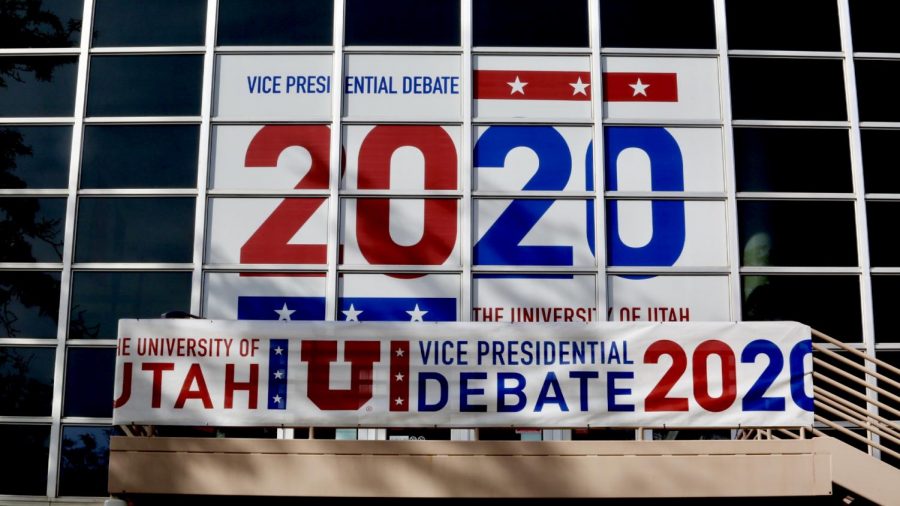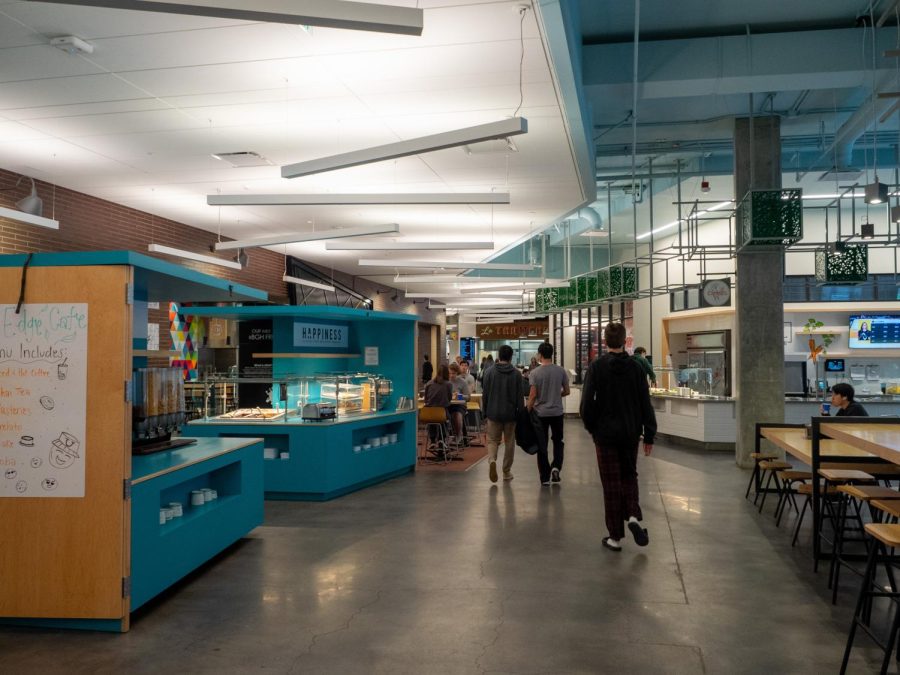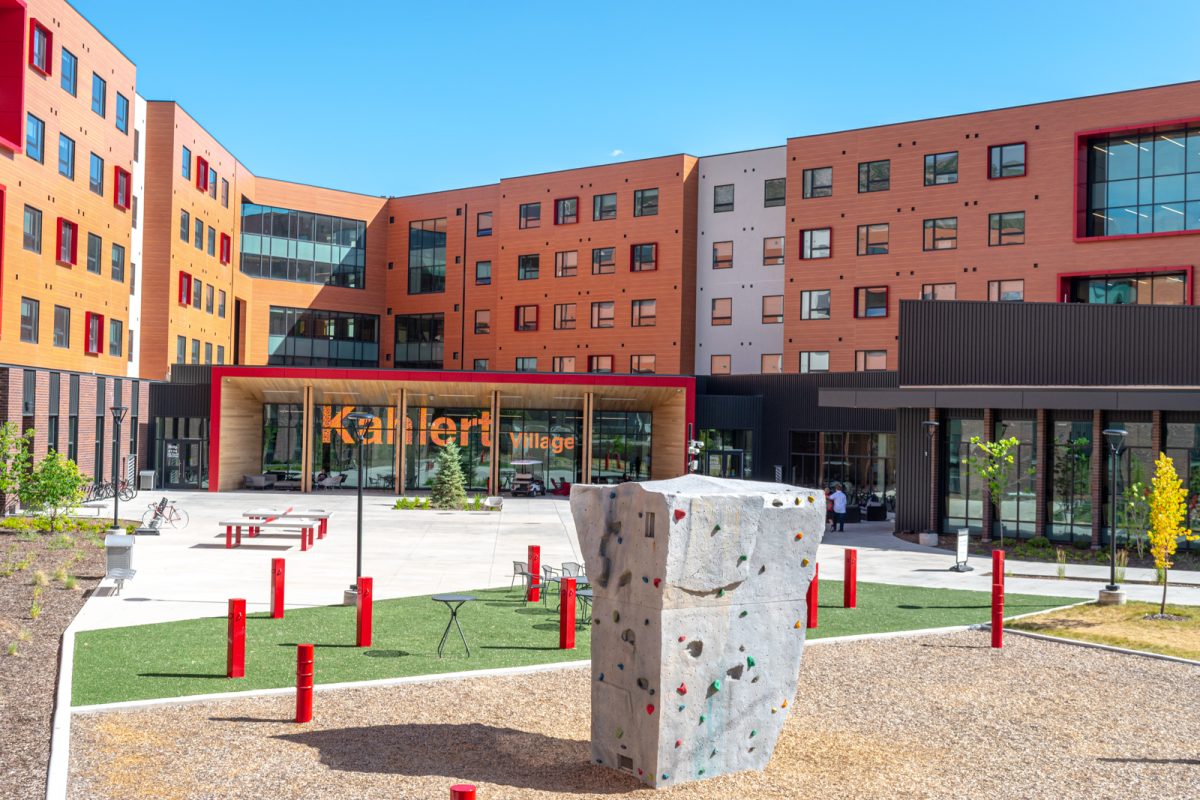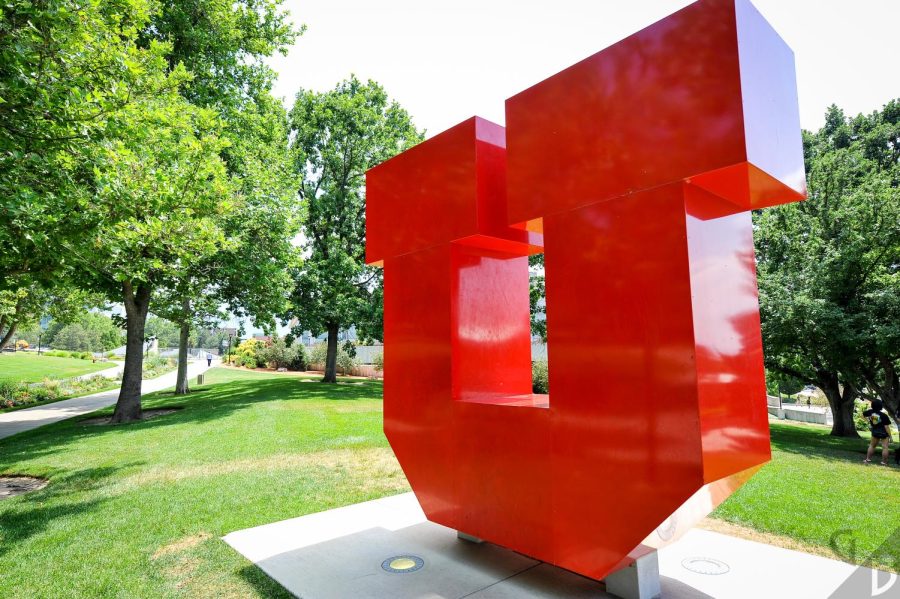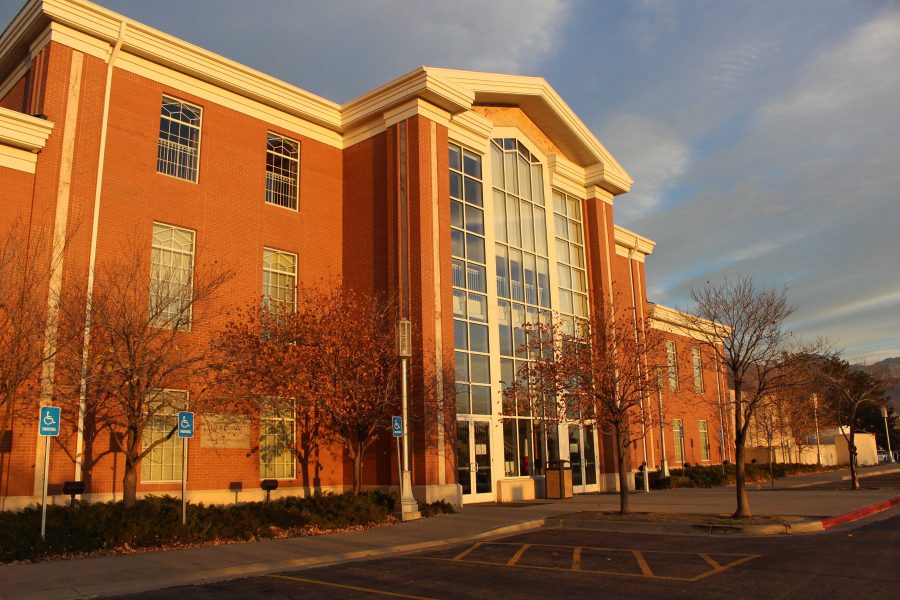Poma: Fellow Undecided Voters, We Need to Make a Decision
An advertisement for the 2020 Vice Presidential Debate at the Student Union at the University of Utah campus in Salt Lake City on September 28th 2020. The last 2024 Presidential Debate will also be held at the U. (Photo by Camille Rousculp | The Daily Utah Chronicle)
October 6, 2020
With all of the challenges we’re facing in 2020, our vote has never mattered more. Yet around half of eligible Americans don’t cast a ballot during election season, and the rate is even lower for young adults. For many college students — myself included — this election will be the first we can vote in, and we face immense pressure to make the right choice. Since a majority voted for Hillary Clinton in 2016 and President Donald Trump still won the electoral college, many felt confused and discouraged from voting at all. Should younger voters decide not to vote out of fear, we will be blamed for another four arduous years of Trump. If Joe Biden wins and equally misguides the nation, then we’ll also be criticized for allowing another incompetent person to lead. With that much on the line, it’s no wonder that so many new voters don’t feel the need to cast a ballot. For a long time, I thought I’d do the same. But as time has passed, I’ve decided to at least consider making my vote honestly count. And there’s still time for others like me to do likewise. To make certain our vote truly counts this time around, we need to pay attention to everything from the daily news to the vice-presidential debates.
My Experience as a (Potential) First-Time Voter
I never “got into” politics. I am a child of two immigrants and both my parents are permanent residents of the US, and therefore, cannot vote. Since I am the first of my family who is able to vote, I feel that I have a responsibility to make my vote count even more. I want to make the right decision with this privilege. Along with that, most of the issues I care about, such as immigration and healthcare reform, are rooted deeply in politics and government. If I want to see change, the presidential election should be of utmost importance to me, even if I’ve never been super involved. We should all, undecided or not, evaluate what social, economic and global issues matter to us the most. Everyone has something significant they care that is connected to politics, and because of this, they need to consider casting their ballot.
With many other first-time and first-generation young voters expected to vote this year too, this year could be similar to the 2008 election turnout, which is considered one of the most diverse electorates in the nation’s history. We should be embracing that identity as much as possible. We have a duty as citizens, but we also owe it to those who cannot vote. We need to vote on behalf of the unnaturalized immigrants who advocate for others to vote, felons who’ve lost the right to vote and those under 18 as we were when Trump won in 2016. While it’s scary having 2020 be our first election, but I think the unique circumstance makes the experience even more interesting. And a beautiful thing to be a part of.
I want to vote, but I also want to make sure I’m voting for the right reasons. I determined a long time ago that Trump doesn’t uphold my values. So personally, I don’t want to vote for him. You may, and that’s perfectly okay. Problems arise, however, when people believe that if people don’t want Trump as president, they can only vote for Joe Biden because he’s apparently the “lesser of two evils.” Biden should still be avidly working towards completely winning the undecided vote, and we shouldn’t rely on that fallacy, especially with such important issues on the line. If I’m going to vote for Biden, I want to do so with confidence in him that he will do better — not just because he isn’t Trump. Those who feel the same way as me may be asking themselves “So what do I do? Should I forego my vote altogether? Do I throw in the towel and vote for Kanye?” While trying to develop my own political stances, I found that proper research leads to knowledge — knowledge that can help us make a sound decision and can give us confidence in our votes.
The Solution to Our New Voter Problems
To gain more understanding about this election, I decided to grow more “politically literate” so to speak, especially since school didn’t educate us nearly enough about politics. But proper research extends beyond scrolling through #2020election on Twitter and reading The New York Times once a week. While such methods are helpful in staying up to date, more substantive possibilities are endless when it comes to interacting with the election process. Discuss (in a kind, civil manner) what you learn with your friends or family, if you’re able. Ask questions when you’re unsure. If there are issues that you care about, spread awareness. Share interesting articles you find, sign or share petitions, donate to charities, and encourage others to do the same.
It also may be beneficial to watch the presidential and vice-presidential debates. Vice presidents may not seem important, but they are representatives of campaigns and only a heartbeat from the presidency. Even if you can’t watch the VP debate live at Kingsbury Hall, you can watch it on CSPAN from the comfort of your home. If there’s one thing to be grateful for in the age of coronavirus, it’s that we have more access than ever before to this and future debates.
For those who know confidently who they’re voting for, that’s great. Thank you for being a part of your democracy. For others who are firm in not voting, just support your friends and family that are going to, even if you don’t agree. Healthy acceptance will make this very strange election year more bearable. For those who don’t know what to do with your ballot, rest assured you aren’t alone. I’m going to keep up with the news and debates to see who can best earn my vote and I hope you will too. While these aren’t the most ideal circumstances to be voting under, those limitations shouldn’t stand as barriers to having a say in the greater issues we’re facing.


